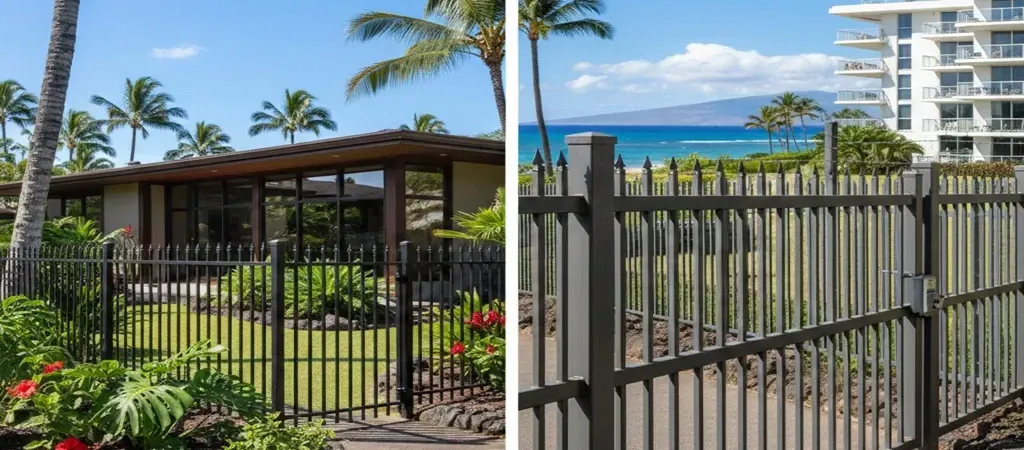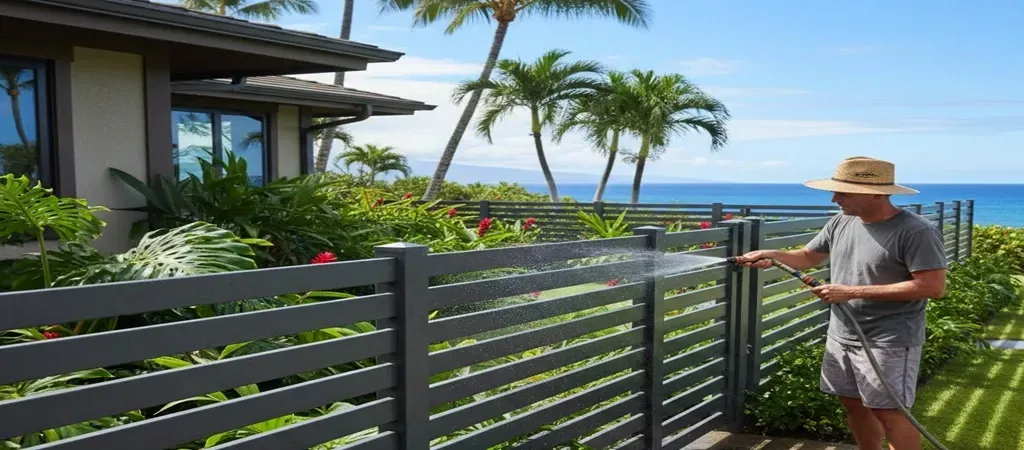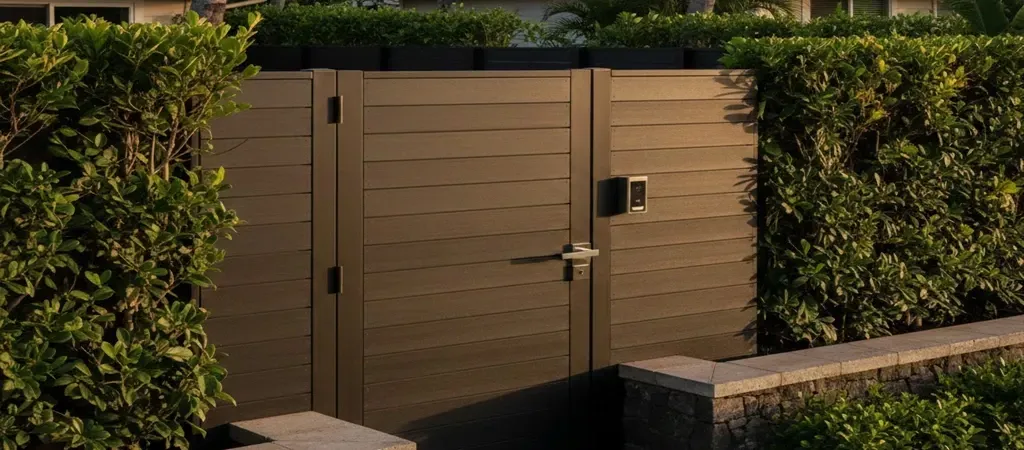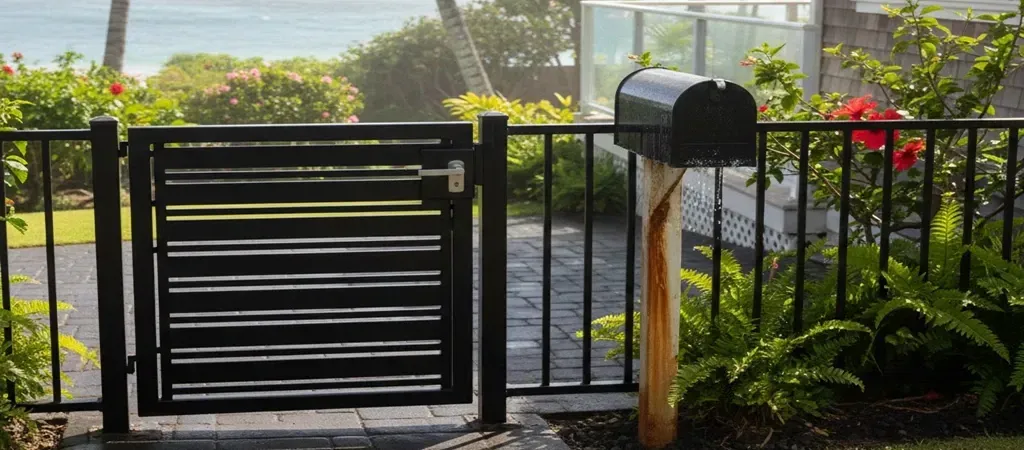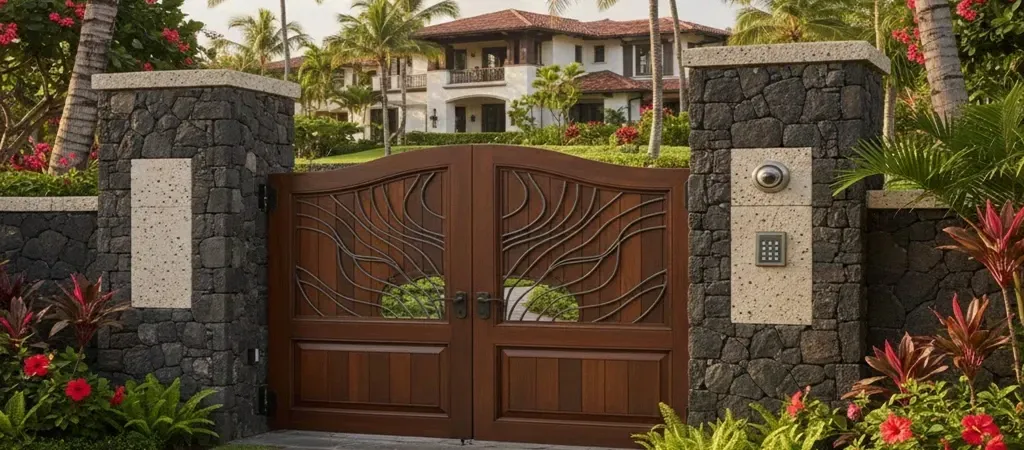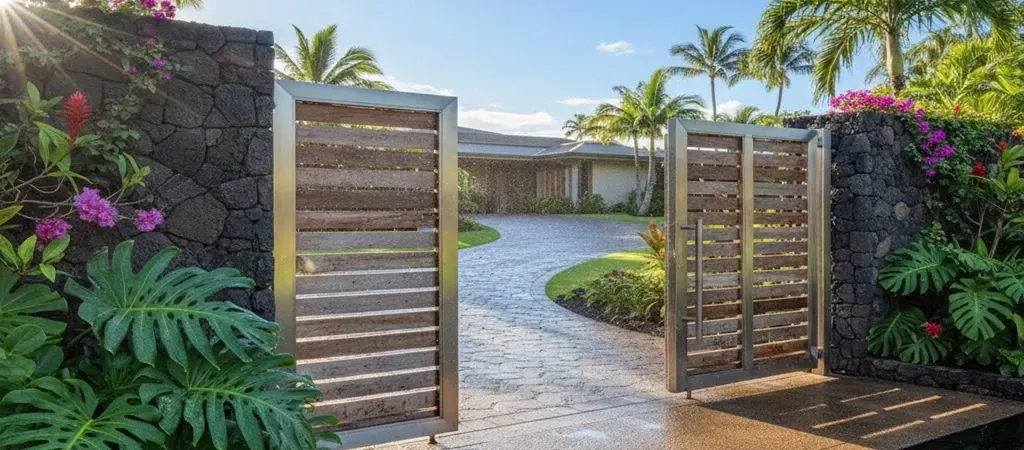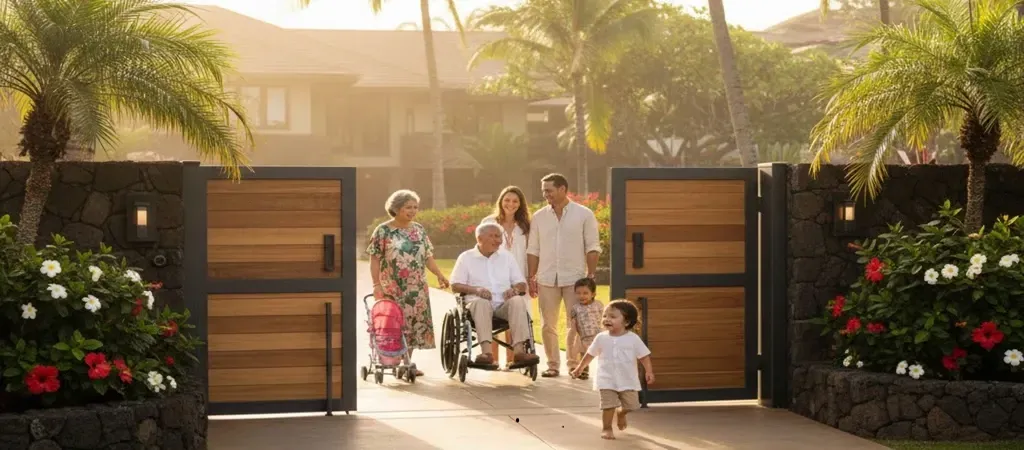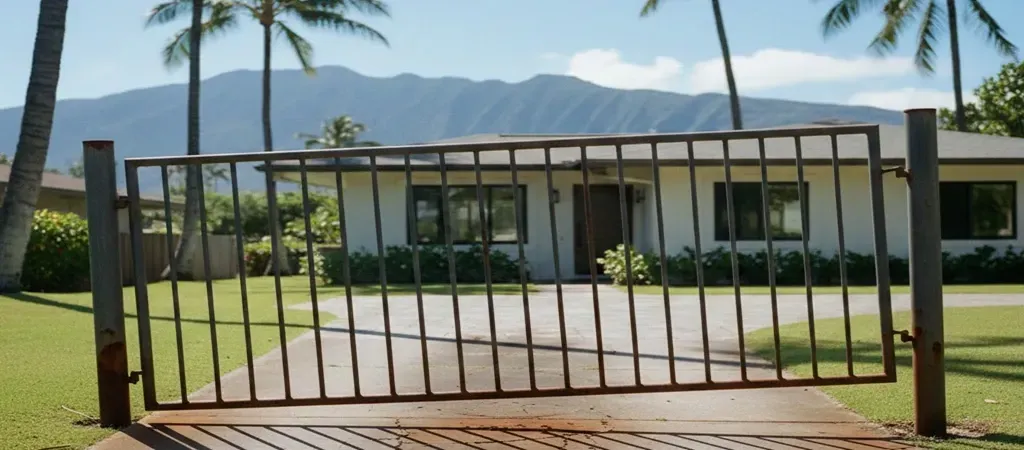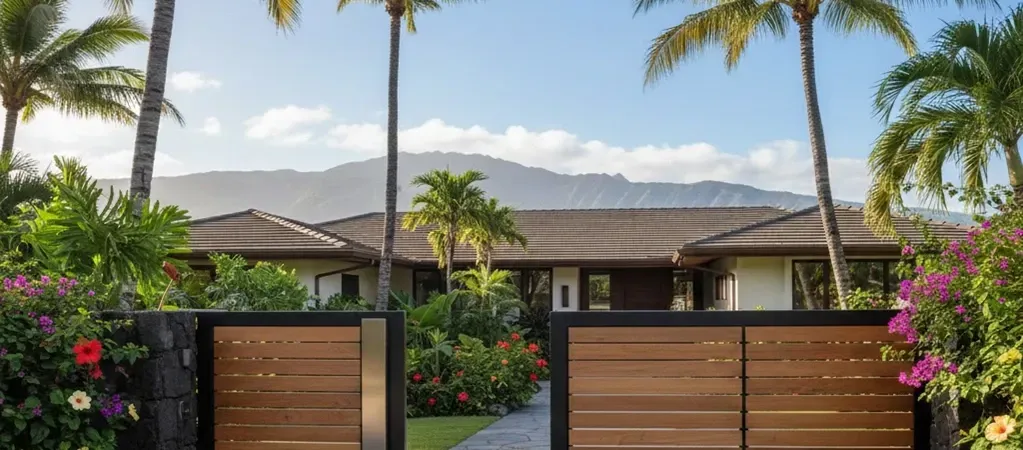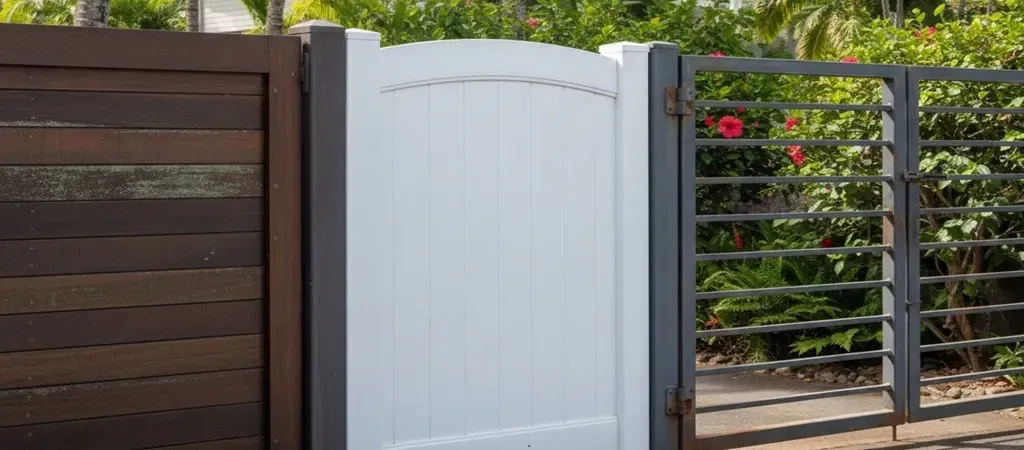What’s Included in Professional Gate Installation Services in Laie, HI?
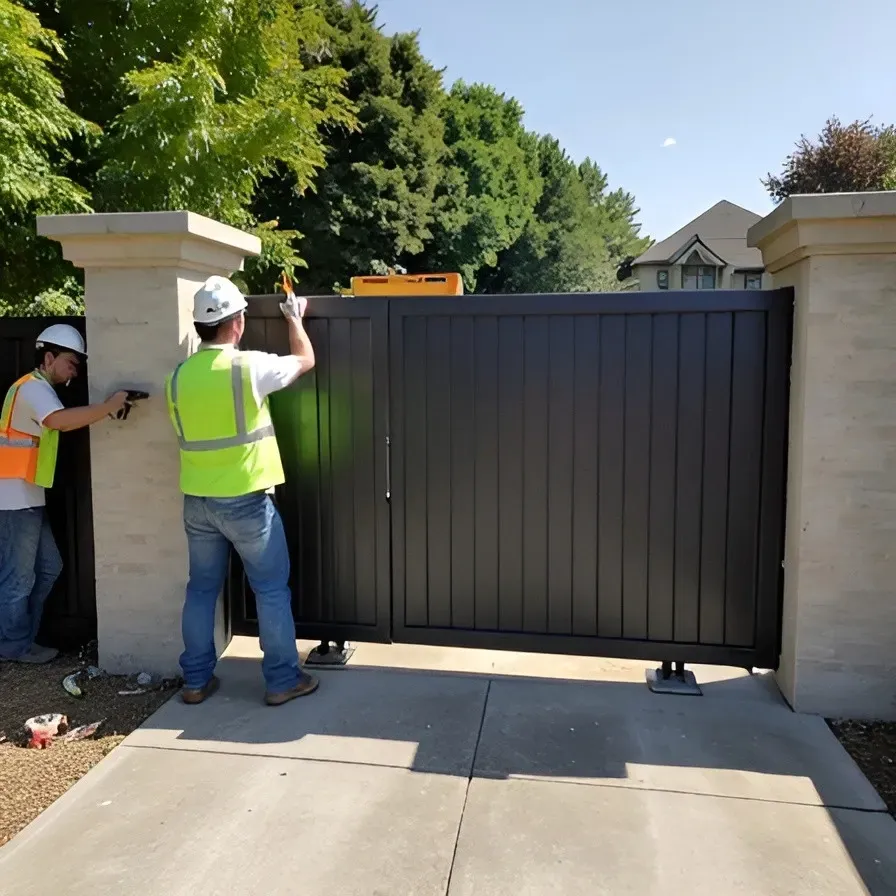
According to a report from Verified Market Reports, the fencing and gates market is worth over $10.5 billion in 2024. The number is expected to grow to $15.8 billion by 2033. This increase is driven by increasing concerns over security, privacy, and property value enhancement.
While
gates
may seem straightforward from the outside, the actual process of installing them professionally is anything but simple. If done right, a gate enhances security and also integrates seamlessly with the surrounding infrastructure.
So what really goes into professional gate installation services? More than you might expect.
Let’s walk through everything you should expect when you invest in gate installation services.
1. Initial consultation & site assessment
The process begins with an in-person site visit. The installer measures the property layout, examines terrain features and utility lines, and evaluates soil composition. Professionals use precision tools like laser distance meters and mapping devices to plan properly.
They discuss the client’s goals which could be related to security, driveway access frequency, automation desire, and
gate style preferences. For properties in Hawaii,
site preparation for fencing is often a key factor to ensure a smooth installation.
2. Gate selection
Once the assessment is complete, design collaboration begins. Based on their goals, clients may choose from materials such as wrought iron, aluminum, steel, vinyl, or wood.
Each offers different strengths. For example:
- Wrought iron or steel is used for strength and ornate styles
- Aluminum for rust resistance and low weight
- Vinyl or wood for warmth and visual privacy
Installers usually guide the clients. They prompt clients to consider local climate exposure, maintenance requirements, and how well a material resists weathering. If you’re weighing your options, our guide on aluminum vs. wrought iron fencing breaks down durability, upkeep, and cost differences.
3. Structural planning
Before moving dirt, proper structural planning is crucial to stay within the safety and legal boundaries. Professionals check zoning and building code limits. This becomes especially handy if the gate is taller than local height limits or near public walkways.
4. Groundwork
With permits in place, the installer clears the area, excavates for posts, and sets foundations. Concrete post holes or pads are poured, leveled, and given time to cure properly.
In the first step, we mentioned that professionals assess the soil composition. Those soil variations are factored in when choosing concrete mix and anchor system. Proper curing time is taken to ensure the gate remains solid and aligned for decades.
For areas prone to storms, following
wind-resistant fencing design principles can help prevent damage.
5. Gate installation
Now comes the actual hanging or mounting of the gate. This could be a manual swing gate, driveway sliding gate, or fully automated entry system. According to market data, the automatic gate opening system market was valued at $11.3 billion in 2023 and is projected to grow to $19.6 billion by 2032.
So if automation is selected, installers mount motors, connect safety sensors, wire keypads, remote or smartphone controls, and integrate with existing security systems if needed.
Choosing the
best materials for fencing in Hawaii can also improve the lifespan and performance of your gate system.
7. Post-installation support
Quality gate installation services don’t end when the installer leaves. Most professionals offer warranties that cover mechanical components, installation workmanship, or automation equipment.
Clients receive maintenance guidance. Some of these instructions include regular lubrication of hinges or tracks, periodic testing of sensors, cleaning routines, locking mechanism checks, and advice on seasonal adjustments.
For more ways to protect your investment, see our
fence maintenance tips for long-term durability.
Clients receive maintenance guidance as part of their professional gate installation services in Oahu. Some of these instructions include regular lubrication of hinges or tracks, periodic testing of sensors, cleaning routines, locking mechanism checks, and advice on seasonal adjustments.
For automated gates, checking battery backups or solar power systems is part of routine upkeep. Many providers also offer automated gate safety features, service plans, or return visits for minor repairs. This ensures your gate remains safe, efficient, and attractive—similar to following fencing maintenance tips for Hawaii homes to extend its lifespan. With consistent care, your gate will function reliably for many years while maintaining curb appeal.
Why choose professional services?
There are numerous benefits of choosing professional services. Let’s go through some of these one by one:
Longevity: Correct site assessment and strong foundation means a stable and secure gate. For example, using the best materials for fencing in Hawaii can ensure durability against local weather.
Risk avoidance: While DIY or untrained installers might cost less initially, hidden failures (such as misaligned gates or code violations) can catch up soon. Knowing how to fix a leaning or damaged fence can be useful, but prevention through expert work is even better.
Automation: As automation becomes more common, professional knowledge of controllers, sensors, and failsafe standards become critical. This is especially true if your setup needs to complement modern fence design ideas for both functionality and style.
Compliance: Experienced installers reduce the risk of missteps with researching the regional and building codes. Following proper site preparation for fencing in Hawaii is a big part of meeting these standards.
Aesthetic fit: A gate is often the first visual element visitors see. Thoughtful design and clean installation elevate curb appeal and value of your property. Combining your gate with landscaping around fencing can create a cohesive and welcoming exterior.
Conclusion
Professional gate installation services in Oahu go far beyond just putting up a gate. They include careful planning, design, proper foundation work, precise installation, and reliable aftercare. Each step plays a role in making sure the gate is secure, durable, and fits the look of your property.
Choosing experienced professionals helps avoid common issues like poor alignment, weak foundations, or electrical faults. It also ensures your gate meets local codes and operates safely—much like following the right fencing maintenance tips for Hawaii homes.
If you’re considering a new gate, hiring experts is a smart investment. You’ll get a well-built system that works smoothly, adds value, and lasts for years—just as combining your installation with custom fence design ideas or landscaping around fencing can elevate curb appeal even further. For long-term reliability, consider pairing it with automated gate safety features that match your property’s needs.
this section should be editable
